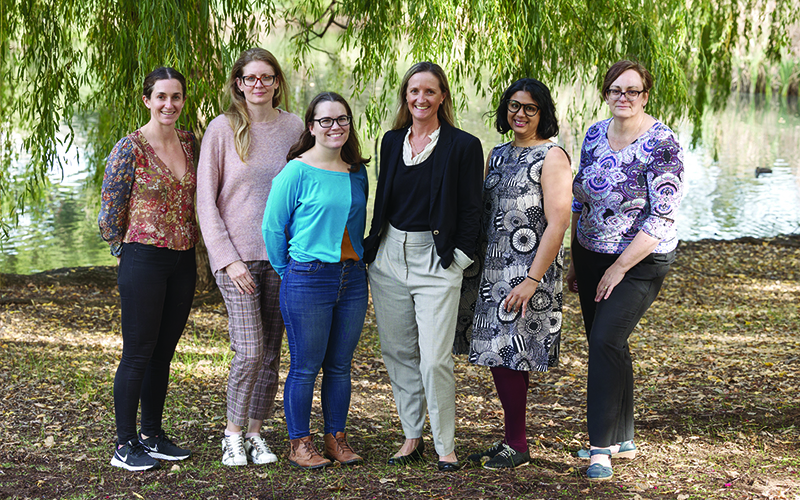Search
Research
Healthy skin for children and young people with skin of colour starts with clinician knowledge and recognition: a narrative reviewSkin conditions most frequently encountered in paediatric practice include infections, infestations, atopic dermatitis, and acne. Skin of colour refers to skin with increased melanin and darker pigmentation, and reflects global racial and ethnic diversity. Managing skin conditions in skin of colour requires health equity nuance, which is rarely explicitly taught.
Research
Mapping residual malaria transmission in VietnamVietnam, as one of the countries in the Greater Mekong Subregion, has committed to eliminating all malaria by 2030. Declining case numbers highlight the country's progress, but challenges including imported cases and pockets of residual transmission remain. To successfully eliminate malaria and to prevent reintroduction of malaria transmission, geostatistical modelling of vulnerability (importation rate) and receptivity (quantified by the reproduction number) of malaria is critical.
Research
Mapping tuberculosis prevalence in Africa using a Bayesian geospatial analysisWorldwide, tuberculosis (TB) remains the leading cause of death from infectious diseases. Africa is the second most-affected region, accounting for a quarter of the global TB burden, but there is limited evidence whether there is subnational variation of TB prevalence across the continent. Therefore, this study aimed to estimate sub-national and local TB prevalence across Africa.
Research
Replanting the Birthing Trees: A Call to Transform Intergenerational Trauma into Cycles of Healing and NurturingAboriginal and Torres Strait Islander ways of knowing, being and doing have fostered physical, social, and emotional wellbeing for millenia, forming a foundation of strength and resilience. However, colonisation, systemic violence and discrimination—including the forced removal of Aboriginal and Torres Strait Islander children, which continues today—have disrupted this foundation, leading to compounding cycles of intergenerational and complex trauma.
Research
Serological Responses to Target Streptococcus pyogenes Vaccine Antigens in Patients With Proven Invasive β-Hemolytic Streptococcal InfectionsRising incidence of invasive β-hemolytic streptococcal (iBHS) infections has prompted consideration of vaccination as a preventative strategy for at-risk populations. The benefits of a vaccine targeting Lancefield group A (Streptococcus pyogenes; Strep A) would increase if cross-species immunity against Lancefield groups C/G (Streptococcus dysgalactiae subspecies equisimilis; SDSE) and B (Streptococcus agalactiae; GBS) was demonstrated.
Research
Quantifying the impact of contact tracing interview prioritisation strategies on disease transmission: A modelling studyContact tracing is an important public health measure used to reduce transmission of infectious diseases. Contact tracers typically conduct telephone interviews with cases to identify contacts and direct them to quarantine, with the aim of preventing onward transmission. However, in situations where caseloads exceed the capacity of the public health system, timely interviews may not be feasible for all cases. Here we present a modelling framework for assessing the impact of different case interview prioritisation strategies on disease transmission.
Research
Few sex differences in regional gray matter volume growth trajectories across early childhoodSex-specific developmental differences in brain structure have been documented in older children and adolescents, with females generally showing smaller overall brain volumes and earlier peak ages than males. However, sex differences in gray matter structural development in early childhood are less studied. We characterized sex-specific trajectories of gray matter volume development in children aged 2–8 years.
Research
Autism Early Intervention Providers: Their Priorities, Use of Empirically Supported Practices, and Professional Development NeedsAutism early intervention research has indicated a research-to-practice gap, including continued use of practices with inadequate research support, and insufficient use of empirically supported practices. The present study explored the processes and mechanisms through which providers working with young children on the autism spectrum learn, select, and implement the various practices in their clinical repertoires.
Research
‘I'm glad my baby has weaned so I don't need to make that decision.’ Understanding breastfeeding-related COVID-19 vaccine narratives on social mediaDuring the coronavirus disease 2019 (COVID-19) pandemic, the infodemic has been highly visible. Vaccine-related advice and evidence-based guidelines for breastfeeding women have lagged, and, at times have been contradictory and confusing. Breastfeeding is an important public health issue with long-lasting health benefits for infants and mothers.

Childcare centres have flocked to take up a new evidence-based policy to help ensure young children get more of the physical activity they need to be healthy and developmentally on track.
